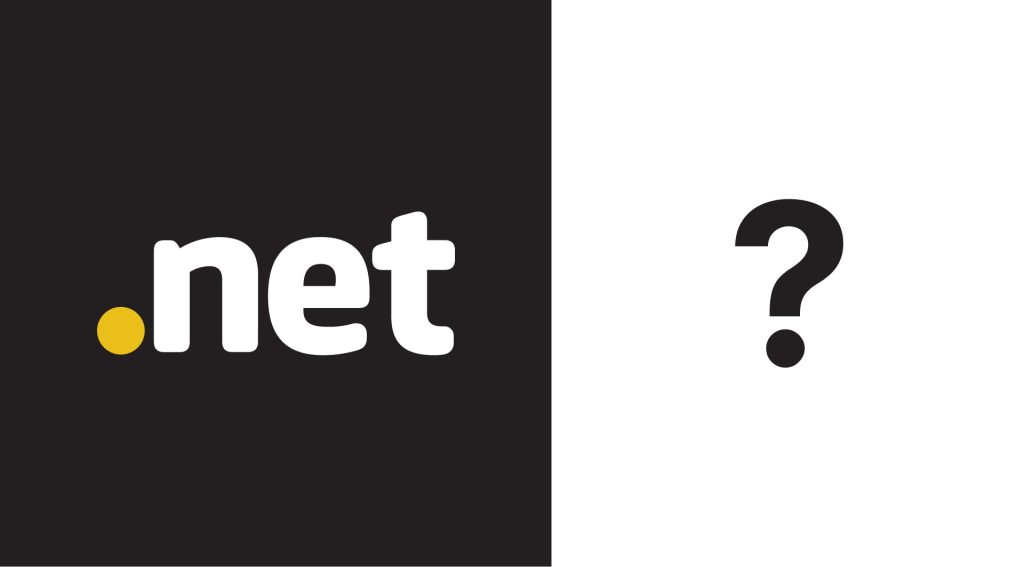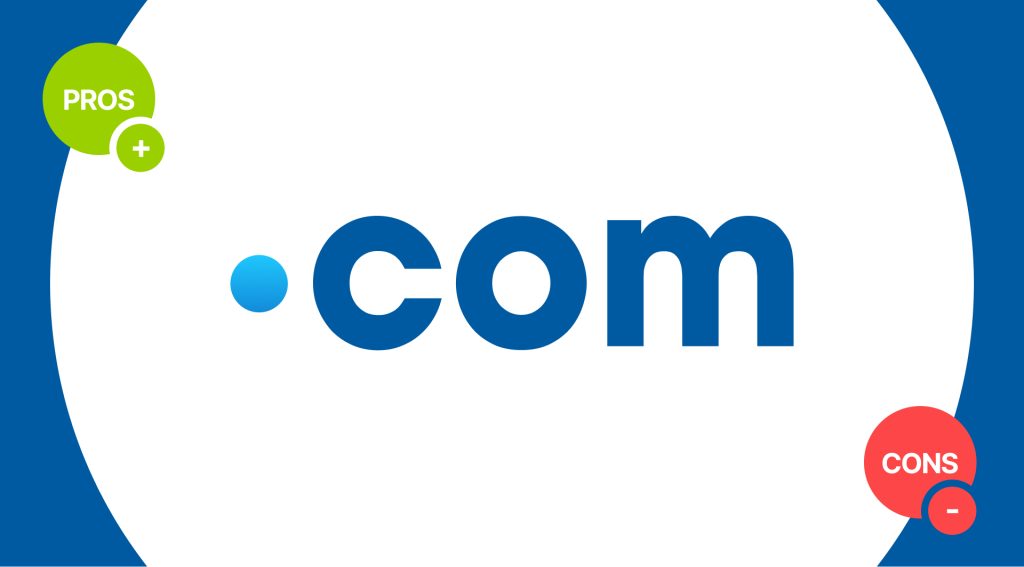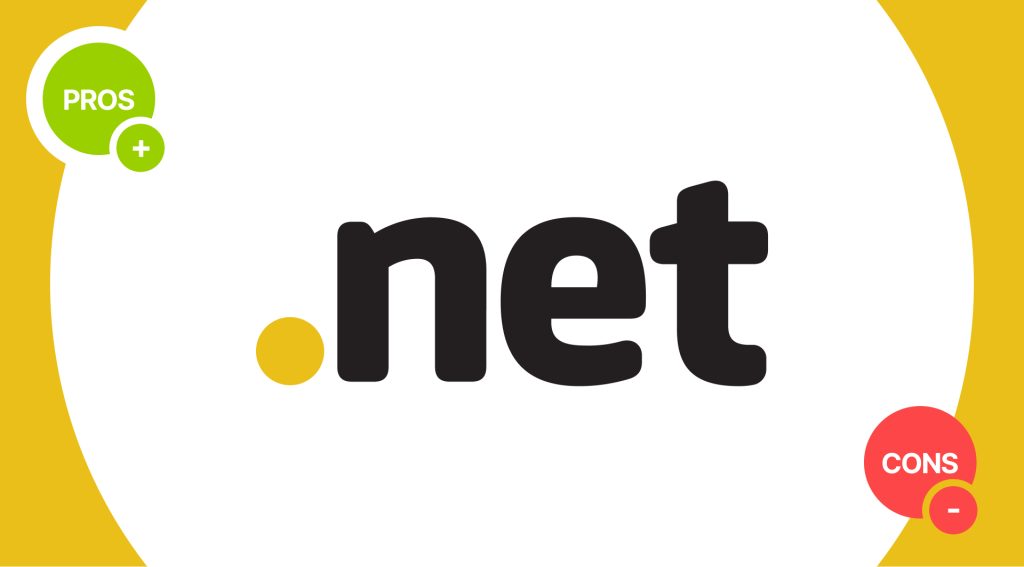When launching a new website, choosing the right domain name is a major step—but just as important is choosing the right domain extension. The two most common choices, .com and .net, may seem similar, but they can have different implications for your brand, your visibility, and your audience’s perception.
In this article, we’ll break down the differences between .com and .net, explore when to use each one, and give you expert tips to help you make the best choice for your website.
What Is a Domain Extension?
A domain extension, also known as a top-level domain (TLD), is the suffix at the end of a domain name—like .com, .net, .org, or .io. It gives context to your website and can impact how it’s perceived and discovered online.

What is .com?
.com is one of the most well-known and widely used top-level domain extensions , originally intended for commercial organizations.
It is often used for general business purposes, as well as for personal branding and website development.

What is .net?
.net is another commonly used TLD (top-level domain), originally intended for internet service providers and infrastructure-related organizations.
It is often used for network-related businesses and organizations, as well as personal or professional websites.
Both .com and .net domains are considered generic top-level domains (gTLDs), meaning they are not limited to any specific use or audience.
Therefore, they are both commonly used for various purposes and by a large number of people and organizations.
| Stands for | Commercial | Network |
| Originally for | Businesses and commerce | Internet providers, networks |
| Popularity | Most popular and trusted | Less popular but still known |
| SEO impact | Slight edge due to familiarity | Slightly lower recognition |
| Cost | Often more expensive | Often more available and affordable |
| Credibility | High | Moderate |

What Is .com Used For?
The .com extension stands for “commercial,” and it’s the most widely used and recognized domain extension in the world. It’s associated with:
- Businesses
- E-commerce stores
- Professional blogs
- Startups and brands
- Personal portfolios
Because of its familiarity, users often assume a website ends in .com—even when it doesn’t. If you’re trying to establish trust, appear professional, or appeal to a wide audience, .com is usually the best choice.
Because of its familiarity, users often assume a website ends in .com—even when it doesn’t. If you’re trying to establish trust, appear professional, or appeal to a wide audience, .com is usually the best choice.
Pros of .com
- Highly trusted by users
- Easy to remember
- Strong brand credibility
- Preferred by search engines in some cases’
Cons of .com
- Many good names are already taken
- Often more expensive
- Competitive in popular niches

What Is .net Used For?
The .net extension stands for “network” and was originally created for internet service providers, tech companies, and infrastructure-related businesses. Today, it’s often used when the .com version of a domain is already taken.
It can be a good choice for:
- Technology-focused businesses
- Web hosting or internet services
- Online communities or platforms
- Personal blogs or portfolios (when .com is not available)
Pros of .net
- More domain names available
- Often cheaper than .com
- Still well-known and respected
Cons of .net
- Not as memorable as .com
- Sometimes seen as a backup option
- Slightly lower trust factor with non-tech audiences
Which One Should You Choose?
Here’s a simple breakdown depending on your goals:
Choose .com if:
- You want to build a professional or business-oriented site
- Your audience is broad and includes non-technical users
- You want the most recognizable and trusted extension
- The .com version of your name is available
Choose .net if:
- You’re in the tech industry or offer network-based services
- Your preferred .com is taken, and you still want a credible alternative
- You want to create an online platform or service
- Your brand identity works well with .net
What If Both Are Available?
If both the .com and .net versions of your domain name are available, consider purchasing both. Redirect the .net to the .com so that visitors who accidentally type the wrong extension still land on your site. This helps protect your brand and ensures consistency across your online presence.
SEO Considerations: Does the Extension Affect Rankings?
Search engines like Google don’t directly favor .com over .net—but user behavior does. Because users are more familiar with .com, they’re more likely to click on it and remember it, which can lead to better traffic and engagement metrics over time.
However, content quality, backlinks, mobile-friendliness, and loading speed will always outweigh your domain extension when it comes to SEO.
Branding Tip: Avoid Confusion
If your website is example.net, but another company owns example.com, your users might accidentally land on the competitor’s site. This can:
- Damage your brand trust
- Cause traffic leakage
- Lead to lost revenue or followers
That’s why owning the .com version is usually the safest bet if you’re serious about your brand.
Final Thoughts
Choosing between .com and .net depends on your website’s purpose, your audience, and the availability of your domain name. For most cases—especially for blogs, businesses, or personal branding—.com is the superior choice due to its trust, recognition, and familiarity.
However, .net remains a solid and respectable alternative, particularly for tech-based websites or when the .com version is unavailable.
Whatever you choose, make sure your domain is easy to remember, reflects your brand, and aligns with your long-term goals.
Pro Tip: Before purchasing your domain, check if the name is available on social media platforms as well. Consistency across web and social handles helps reinforce your brand identity.
Kelvin A



